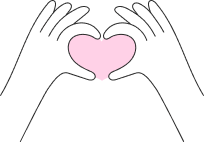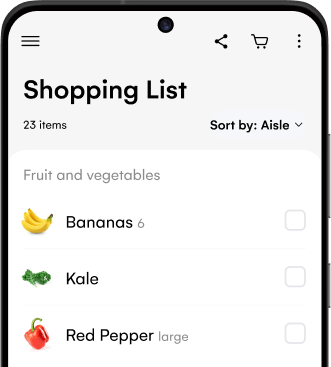We have all experienced food cravings at some point in our lives. A food craving is when your body is telling you that you want to eat a certain food. The types of food people crave are all dependent on where you live and the cultural norms around food. In Japan, rice is a common craving, and in the USA, cake and ice cream are popular cravings. You might have your own particular cravings – maybe you always want something salty, something deep-fried, or something sweet.
Analyse nutritional information for any recipe

So why does this happen even though we’re not always even hungry when cravings hit? And should you listen to your body or try to ignore them? Turns out, the answer isn’t as clear as you might think.
What are food cravings?
Cravings should not be confused with hunger. Hunger is when our body lets us know that it is time for our next meal. Cravings occur when we want a specific food rather than just anything to satiate our hunger. However, they do sometimes occur when you’re hungry too.
Food cravings are different for men and women, they are also different during specific diets and/or restriction periods. Weight loss has been shown to reduce cravings. There could be several reasons why we get food cravings. These can include food deprivation, nutrient deficiencies, and psychological reasons. Hormones can also play a role, as pregnant women can attest to!
Food cues are another cause of cravings. These tend to fall under the umbrella of psychological cravings. If you’ve seen a particularly mouthwatering advert, social media post, or even visual cues like watching Masterchef you’ll probably know they can trigger cravings.

Are nutrient deficiencies to blame?
Lots of us have heard that food cravings stem from nutrient deficiencies. But there is not a lot of evidence on this theory. There are some specific cravings that may be related to nutrient deficiencies such as some salt cravings, which may be linked to a sodium deficiency.
Pica is what doctors call the phenomenon where a non food craving occurs, such as ice (pagophagia), dirt, or even detergent. It might sound strange, but these cravings have been known to be associated with not only iron deficiency but also zinc deficiency.
There could be other reasons behind pica and salt cravings though. For example, eating ice can simply be a thirst response and craving salty foods could be due to excessive sweating. It is always recommended to discuss any symptoms with your healthcare provider.
Internal and external triggers
There are several internal and external factors that can cause cravings. These include but are not limited to: hormones, lack of sleep, physical activity, dehydration, and eating a lot of processed foods.
There are specific hormones that are related to appetite which include ghrelin, leptin and insulin. Lack of sleep can cause an imbalance in hunger hormones, which could affect cravings. And women experience cravings due to hormones during premenstrual syndrome and pregnancy.
Certain foods can trigger the reward system in our brains and release dopamine, which teaches us that a specific food makes us feel good. During times of stress, our bodies crave them because we know these foods will make us feel better. In the short term, anyway! These foods will vary from person to person. After all, everyone has their own opinion on what a crave worthy food is. However, processed foods often fall into this category. It’s a shame we don’t all crave broccoli, but the likelihood is you’re probably craving sweets or pizza.
Physical activity has been believed to decrease food cravings but research also states that it can also increase cravings. It is important to be mindful of the impact physical activity has on your specific cravings.
Dehydration may indirectly contribute to food cravings in several ways. If there is not an appropriate amount of fluid in the body specific functions can’t occur. Some of these functions include but are not limited to glycemic control, hunger hormones and cortisol levels. The research is still pretty limited on these relationships and further studies need to be done. But if you’re struggling with food cravings, it might be worth upping your water intake.

The stress factor
You probably already knew that stress eating existed through anecdotal evidence, but science agrees too. Studies have shown that stress has an impact on the food choices we make. Those with acute stress can experience appetite suppression, while those with chronic stress crave foods that are higher in carbs and fat.
This comes back to hormones too. Why? It is believed that cortisol, known as the stress hormone, may have an impact on the reward factor of food. Increased cortisol levels could also increase food cravings during times of stress.
Get inspired and connect with other home cooks like you

Food deprivation and cravings
There have been studies that have shown when a specific food is restricted, cravings for that particular food increase as a result. Like how if you ban chocolate despite being a chocoholic, you’ll probably find cravings for it intensify.
Interestingly enough though, weight loss studies demonstrate that restricted calories have shown a decrease in cravings. So theoretically, you could experience either an increase in specific cravings or a decrease if you restrict calories.
There are limited findings on food deprivation being a cause for cravings. Generally speaking, it is recommended to follow a balanced diet to help minimize hunger and incorporate favorite foods to minimize deprivation. The 80/20 rule for healthy eating might work for you if you’re trying to create balance in your diet.
How to beat food cravings
In order to beat a food craving, you have to figure out what has triggered it. Once the trigger is determined, it will be easier to figure out how to beat them. If pica has been diagnosed due to a micronutrient deficiency then correct supplementation should help. Salt cravings that occur from sodium deficiency can be taken care of once sodium levels are within normal limits.

Stress related cravings can be managed due to managing the stress while hormonal cravings may be managed by determining the type of hormonal trigger.
If you suspect your cravings are emotional, our blog on understanding emotional eating might help you figure out what triggers a craving and better ways to cope with them.
Overall, improving sleep, diet, and managing stress, may help improve cravings. Drinking more water, and eating balanced, protein rich meals may help with satiety and hunger, resulting in minimal cravings.
When creating a balanced meal plan, Samsung Food app has a plethora of recipes that can satisfy any craving, having the nutrition information available can make applying these to any diet plan seamless. Download it to try it out.


